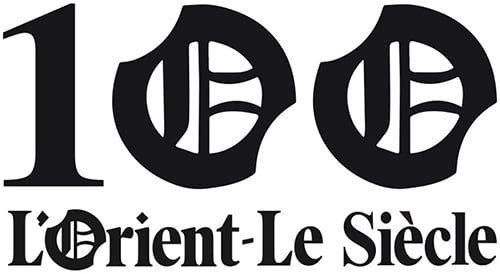An olive tree that can be adopted. Photo Apadrinaunolivo.org
There are few things worse than being neglected into oblivion. The olive trees of Oliete, a village in Teruel, Spain, were disappearing for this very reason. Oliete’s 300 residents live surrounded by the trees, and most families own land with at least a few. But Oliete is located in one of the most deserted areas of Europe and, due to rural exodus, its 100,000 olive trees seemed doomed to dry out and die. Then, four years ago, hundreds of “godparents” came to their rescue.
Alberto Alfonso, 41, is one of Oliete’s many children who emigrated to the big city (in his case, Barcelona), looking for work. Each year, he would go back to his family’s farm for the olive harvest. In 2013, he took notice of the empty and neglected neighboring fields; there was nobody left to work them, and 70 percent of the trees had been abandoned. “He said to me, ‘The village is dying, we have to do something,’” said Sira Plana, 40. Her grandfather was the village veterinarian in the 1950s, and her parents had emigrated to Madrid.
Alfonso and Plana decided to create Apadrina un Olivo (Adopt an Olive Tree), a nonprofit hoping to create jobs in the village, save its 100-year-old ecosystem and bring life back to a dying region.
They had the will but lacked the money to make the idea come true. What’s more, most of the trees they were trying to rescue did not belong to them; many were inherited by people who had left the town and had neither the time nor the will to return. “We worked it out it with a legal entity called land stewardship. It's an agreement between two parties in which one promises to take care of a natural area that belongs to the other,” Plana said.
Two young computer engineers who Alfonso had met at a party in London in 2013 tackled the money issue. Internet was the only real way to spread the word about saving the olive trees beyond the village. The engineers, Pablo García and Adrián Martín - and his brother José Alfredo - took pictures of all the endangered trees, then identified each one with a code and offered the world the possibility to adopt one for 50 euros a year. In return, the donors would receive two liters of oil from each harvest.
The engineers created a user-friendly website, which combined with an excellent social media strategy and occasional media appearances, opened Oliete to the world. They obtained 500 donations that first year, and ended 2017 with 2,450 donations, many from France and Germany.
Godmother of some trees
Nicole Escolier, a 68-year-old French woman, is a godmother to some of the trees. “I'm very Mediterranean, olives remind me of my French and Algerian roots, so when my husband came across this project, he adopted a tree for me as a gift. Now we have four,” she said. The couple visits the village at least twice a year.
Since its foundation, the nonprofit has saved more than 7,000 olive trees and created 14 jobs, two of which brought families from other Spanish regions to town, adding eight new children to the village. Thanks to them, the local school has remained open. In 2016, Oliete acquired an olive oil press. In past years, the village had three presses, but the last one of these closed more than a decade ago.
Ramiro Alfonso, Oliete’s Socialist mayor, believes this initiative has been of great help to a town council that, like many others, fights against rural exodus. “They've brought life back into the village, they've attracted families with children, they promote cultural activities. Population decline is one of the main concerns in the rural world and they've come together to help stop it,” he said.
Raúl García, 34, and his family moved to Oliete to start a new life far from their native Málaga thanks to Apadrina un Olivo. García received training from local companies and now runs the olive press. “We're happy, the children are happy – our eldest is passing English for the first time,” he joked. “But living here takes some getting used to. The winter is harsh, you need sun or simply some company, and sometimes you don’t get that here.”
Now that the nonprofit is up and running, its priority is sustainability and subsistence. It has created a line of olive oil, which is marketed as a wedding gift, and another of olive wood rings. It offers companies the possibility to create gift baskets for their employees, and sells its products in local restaurants and markets.
It also organizes monthly visits to the village for the trees’ godparents. In four years, the village has hosted more than 3,000 of these people. “This goes beyond a mere financial donation, it creates a real bond and teaches the donors about the problems we face in this region,” Plana said.
The initiative’s positive effects are slowly but surely starting to show. There are more children now than a few years ago, a small olive oil factory has been reopened, farms are being signposted and in the countryside, the fields are cleaner and greener. Oliete’s ancient olive trees are far from forgotten.

commentaires (1)
Pourquoi écrire en français, lorsqu'on peut le faire en anglais ? If you read the english, you read it. Puis-je ajouter en français, qu'un olivier âgé de 600 ans, donne le même fruit qu'un olivier de 6 ans. Le reste, it not concerns me.
Un Libanais
16 h 05, le 25 juin 2018